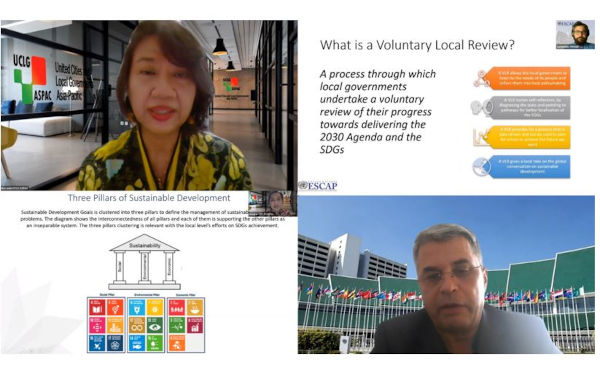With a rapid population growth, and around 50% of its population living in urban areas, the Asia-Pacific region is stepping up to reach the Global 2030 Agenda, also called the Sustainable Development Goals or SDGs.
It is an agreement between countries in the world to commit and work together towards achieving SDGs based on human rights and equality and with only less than 10 years to go, as well as the set of changes presented by the COVID-19 pandemic, its achievement is now more important than ever.
Since the adoption of this global commitment in 2015, countries in the world have compiled reports on the achievement of SDGs voluntarily. The report is known as the Voluntary National Reviews (VNR), which is compiled by states and then presented at the High-Level Political Forum (HLPF) on Sustainable Development every two years. This year however, countries like Indonesia re expected to submit their VNR this year, along with Pakistan next year.
In addition to the VNR, there are two voluntary reports that have begun its compiling in line with preparation of the VNR, namely Voluntary Sub-National Reviews (VSR) and Voluntary Local Reviews (VLR) which are developed by local governments.
Regarding this notion, UCLG ASPAC as a local governments association in the Asia-Pacific region finds that cities and its local governments with commitments to achieving SDGs will benefit from writing the VLR report. However, there are challenges such as the lack of information regarding its preparation and formal guidance.
Meanwhile UNESCAP as partner of UCLG ASPAC has launched an Asia Pacific Guidelines on VLR last year, together with PPSU. UNESCAP also provides intergovernmental platform for member states to discuss progress on SDGs as well as other commitments such as the Paris Agreement.
Therefore UCLG ASPAC in partnership with UNESCAP conducted an introductory training to the VLR preparation and writing on 22nd April 2021. Participants of the training included representatives from cities in Indonesia (Surabaya, Bontang, Semarang and Tual) as well Shah Alam city in Malaysia, and other cities in Pakistan.
During her opening remarks, Dr. Bernadia Irawati Tjandradewi as Secretary General of UCLG ASPAC is positive on the benefits and outcomes of this training for local governments, particularly as there has been high interest surrounding the VLR, how to start writing it and what components to include, especially due to some significant challenges.
“We (UCLG ASPAC) have been seeing great interest from our local governments members to come up with their VLR, therefore I hope that this training could increase their capacity as this will also ultimately be part of localising the SDGs. In addition to that, I hope that local governments can overcome challenges in writing the VLR such as availability of data, difficulty of coordination between departments, no mechanism to work together with different stakeholders such as non-state actors,” she said.
The Voluntary Local Review, and the involvement of city/local governments was also agreed by Mr. Curt Garrigan as Chief of the Sustainable Urban Development Section of UNESCAP during his remarks.
“We’re happy to work with partners like UCLG ASPAC because in order to achieve the aspirations of the 2030 agenda, the Paris Agreement and such, the action of cities are necessary and actions taken to tackle climate change, poverty as part of the SDGs, local actors must be engaged,” he said.
In addition to that, Mr. Garrigan also hopes that the training and the VLR Guidelines can help in providing guidance to local authorities to plan, and manage their cities to build sustainable, smart, inclusive, and resilient communities – especially for cities who are already aware and committed to producing VLRs.
“Reporting the achievement of SDGs has been recognised and I wish this training benefits local governments to better prepare the VLRs as its local context will also enable citizens to participate in the 2030 Agenda and the overall aim of building sustainable communities anywhere,” he added.
By KM Team











